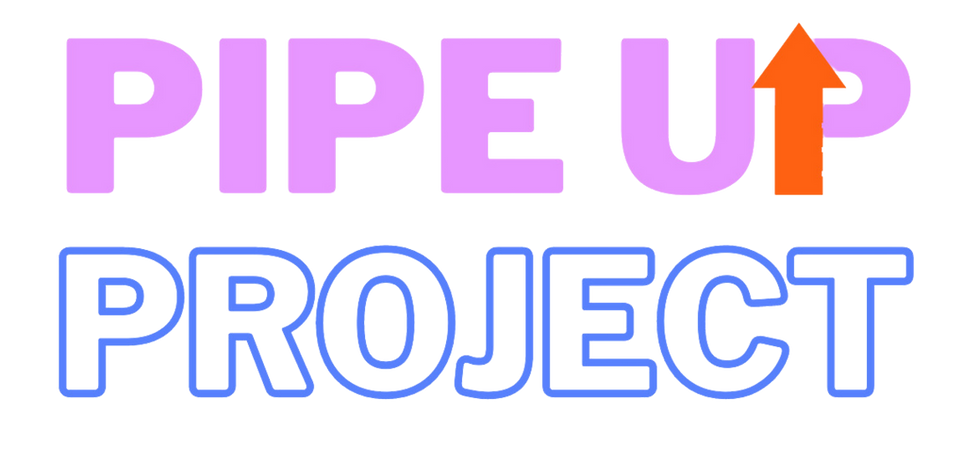How Improv Improves: Insights from Mary Lemmer, Founder of Improve
- Piper Rosenberg
- Feb 3
- 3 min read
Updated: Mar 24
Meet Mary Lemmer, founder of @chooseimprove, a company that offers workshops, training, and consulting services that utilize improv to help individuals and organizations enhance creativity, communication, adaptability, and overall well-being.

Piper
Could you tell me about Improve? What inspired you to start the company, and what services do you offer?
Mary
In high school, I started a gelato business, which was an amazing experience, but it came with a lot of stress and anxiety—sometimes even panic attacks. Juggling unexpected challenges as both a teenager and a business owner was overwhelming. Later, after college, I was running the same business while working a demanding job at a venture capital firm, and I hit a breaking point.
I decided to take a break and signed up for an improv class just for fun. I’ve always had a casual interest in performing, and that class changed my life. For the first time in my adult life, I felt relaxed. I didn’t have to strategize or second-guess myself—I could just be. Everything I said or did was accepted and supported, which was freeing and therapeutic.
From there, I trained at The Second City in Chicago and started teaching improv workshops to entrepreneurs and business professionals. I realized there was something special about combining improv with business principles. It helped people unlock creativity, embrace failure, and work better as teams. Eventually, I turned this passion into my full-time work.
Now, seven years later, I offer workshops, company offsites, keynote sessions, and online programs for individuals. I’ve worked with companies like Google, Pfizer, and startups worldwide to help leaders and teams improve communication, adaptability, and collaboration—all backed by research and neuroscience.
Piper
Can you share a memorable experience where improv made a significant impact on a team or individual?
Mary
One of my first big moments came at a conference in 2018. It was my first time presenting on a larger stage, and over 100 people joined my session, some leaving other workshops because of how much fun we were having.
Afterward, a woman came up to me in tears, asking if she could give me a hug. She told me that the session had changed her life and thanked me for creating such a transformative experience. It was powerful to see how quickly total strangers became connected and how it impacted her both personally and professionally.
On a team level, I’ve seen companies implement the “Yes, and” mindset, even hanging it on their office walls. These teams report better communication, trust, collaboration, and adaptability. Improv principles help them navigate mistakes, connect with customers, and work more efficiently. Seeing teams embrace these ideas and thrive is incredibly rewarding.
Piper
What’s your best advice for entrepreneurs looking to incorporate improv principles into their business practices?
Mary
My advice is simple: practice improv! Start by building these skills within yourself before introducing them to your team. Entrepreneurs set the tone for their company culture, so it’s important to “walk the talk.” Some easy ways to practice include taking a new route on a walk, brushing your teeth with your non-dominant hand, or doing simple exercises like “First Word, Last Word” to practice active listening. For brainstorming, I recommend pointing to objects and naming what they aren’t—it’s a great way to train your brain to think creatively.
For entrepreneurs pitching to investors, I’ve developed specific techniques to help tell concise, compelling stories that resonate. Improv is all about rewiring your brain to embrace the unexpected, which is invaluable in business.
Piper
How do you envision the future of improv in corporate settings? What trends or changes do you anticipate?
Mary
I believe improv is the next meditation. Just as companies now invest in mindfulness programs, I think we’ll see improv becoming a core part of corporate culture. The principles of improv—adaptability, connection, creativity—are crucial for thriving in today’s constantly changing world.
I also anticipate a shift from one-off team-building sessions to long-term integration. Companies that embed improv into their culture will see lasting benefits, from better communication to more cohesive teams. Improv is more than just fun and games—it’s a powerful tool for personal and professional growth.
Piper
Can you share more about the improv-related research you’re working on at Improve?
Mary
While I can’t share too much yet, we’ve been conducting research on the physiological benefits of improv. We’re studying how regular improv practice affects anxiety, loneliness, creativity, and even physical factors like heart rate, sleep quality, and activity levels. The early results have been promising, and I’m excited to contribute to the growing body of evidence showing how improv can improve both mental and physical well-being.
Piper
Finish this sentence: I love improv because…
Mary
Life is improv. Improv mimics life—it’s all about embracing the unexpected, connecting with others, and finding joy in the moment. Plus, it’s fun!


Comments